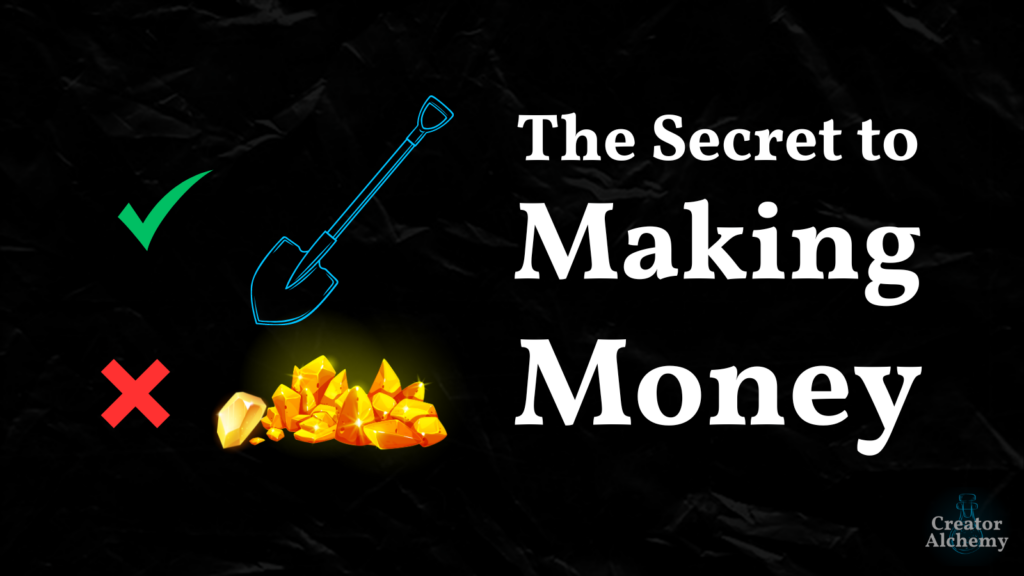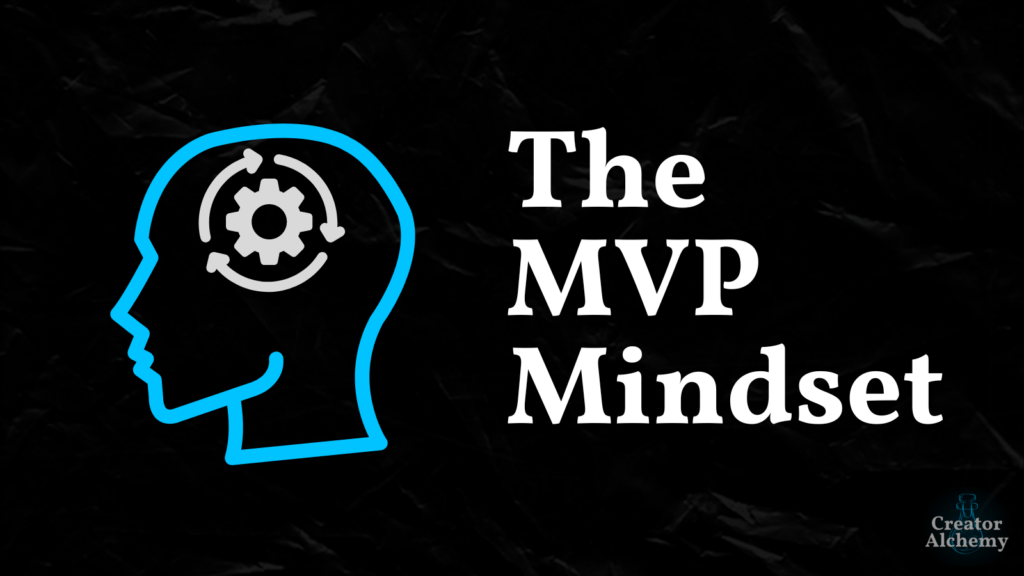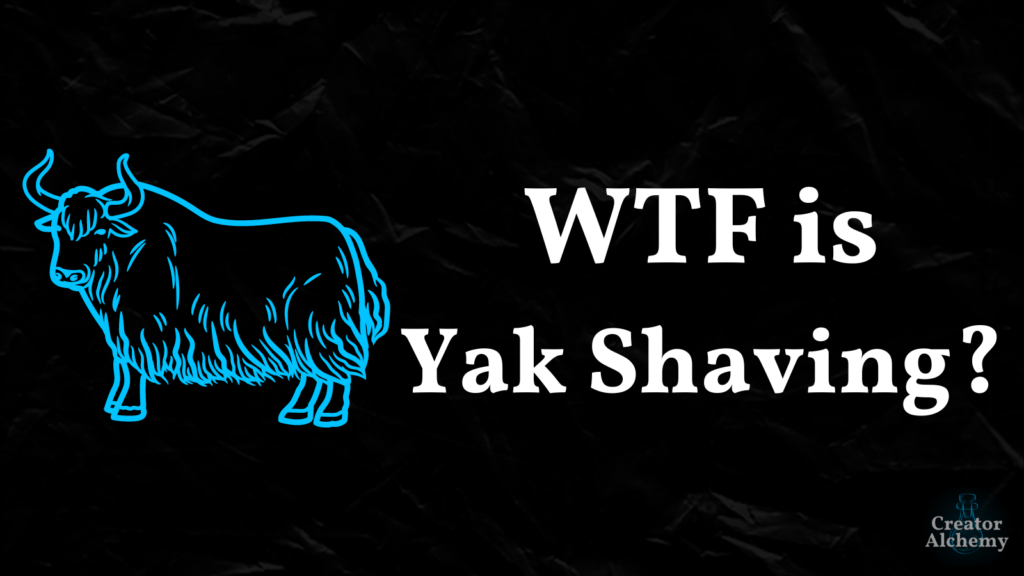Kevin Kelly, renowned entrepreneur and writer, once talked about a friend who arranged his life in blocks of 5 years:
“Five years is what he says any project worth doing will take. From the moment of inception to the last good-riddance, a book, a campaign, a new job, a start-up will take 5 years to play through. So, he asks himself, how many 5 years do I have left? He can count them on one hand even if he is lucky.
So this clarifies his choices. If he has less than 5 big things he can do, what will they be?”
I turn 35 today—and as a November baby, my birthday falls at the intersection of the most contemplative times of the year.
Fall is a season of reaping and death, so we reflect on our past experiences and prepare to settle into the solitude of winter.
December into January is when people reflect on their past year in annual reviews and set their intentions for the coming year.
Then there’s my own birthday—another reminder both that I’m getting closer to the grave and that I’ve made it another year where I had the privilege to stay this side of the dirt.
So in the spirit of reflection and arranging life in blocks of 5 years, in today’s piece, I’m going to dive into my own life and reflect on advice I’d give my younger self and lessons I hope you’ll take away to use in your own life.
Let’s get started…
•••
5 Years Ago (Advice to 30-Year-Old Corey)
To 30-year-old Corey,
You’re finishing your doctoral internship specializing in addiction treatment. You haven’t even finished your degree, but you’re already feeling burnout creep in—you’re questioning if you’ve spent the last 12 years of your life optimizing for the wrong thing.
You spend your time daydreaming about maybe someday being a writer. You’re tired of real insights and strategies from psychology being locked away in the ivory towers of academia or behind expensive, jargony academic journals. Psychology experts don’t share their expertise with the masses—so the only people left to talk about psychology are bullshit self-help “gurus.”
You want to be the bridge—an expert who can talk to regular people and distill psychology down into actionable content.
Here’s the advice I wish you’d had:
- Stop waiting for someone else’s permission to share your ideas with the world—you don’t need it and will never get it.
- Stop waiting to feel “ready.” You never will.
- Learn to understand how the skills you’re learning today are the foundation for anything you want to do in the future.
- You can leave this path anytime you want—don’t listen to everyone telling you there are no other options.
- Recognize the hidden cost of success and make sure you’re willing to pay it. You don’t actually want to “succeed” on your current path.
The only person whose permission and acceptance you need is your own.
Once you learn how to trust yourself and the path you know is right for you, you’ll take the first real steps toward reaching your potential.
•••
10 Years Ago (Advice to 25-Year-Old Corey)
To 25-year-old Corey,
You’re in a master’s program and questioning if you’ll ever be good enough to get into a doctoral program. You’ve already gotten countless rejections (and will continue to get rejected from doctoral programs for 3 years).
You desperately want to become a therapist (and right now, you want to become a sex therapist) because you think that’s the only way you can help people.
Here’s the advice I wish you’d had:
- Perseverance is a superpower. You’re building right now that will serve you well with everything you do in the future. Most people give up too soon. And most success comes down to outlasting the competition. Keep at it. You’ll get there.
- There’s no substitute for just doing the fucking work. Learn to accurately assess your shortcomings and why you aren’t getting the results you claim to want. Once you identify the work you need to do—pursue it with everything you’ve got.
- But blind perseverance is a liability. Balance it with adaptability. Learn to know when to stay on the path and when to course correct to a destination that’s more aligned with the life you actually want to live.
- Sometimes not getting what you want is the best thing that can happen to you. If you’d become a sex therapist, you’d be miserable. There’s a more fulfilling life you can’t even fathom yet—and you’ll only discover it after climbing a mountain’s worth of rejections toward the life you think you want right now. Rejection hurts now, but it’s setting you up for success later.
You’ll make it through this, and come out the other side stronger, wiser, and more confident because of it.
•••
15 Years Ago (Advice to 20-Year-Old Corey)
To 20-year-old Corey,
You’re maybe a sophomore in college—the first in your family to pursue a 4-year degree.
You have no idea what to do with your life right now. You know you want to help people live better lives, but you don’t know what path helps you do that.
You think owning your own business is the right path, so you become a business major. But you quickly realize your business classes don’t talk about helping people—they only talk about numbers and economic theories.
So you switched to dietetics because you like nutrition, then you realized you don’t give a shit how much zinc is in asparagus.
You’re currently an “undecided” major and feel adrift in life.
Here’s the advice I wish you’d had:
- Clarify what truly matters in your life. Your Core Value is freedom—both the freedom to do work that resonates with you and the ability to help others pursue their version of freedom. Use that to guide your decisions.
- No one knows what they’re doing. It’s ok if you feel lost. The most successful people in the world are still bumblefucking their way through life. That’s part of what makes life worth living—figuring it out as you go and embracing uncertainty.
- Everyone feels like they don’t belong in the room—that’s called Imposter Syndrome. But you do belong in the room—you just have to give yourself permission to be there.
Also, you’re about to take a required psychology class that is literally going to change the trajectory of the rest of your life…
•••
20 Years Ago (Advice to 15-Year-Old Corey)
To 15-year-old Corey,
You’re in high school, trying to figure out your identity, and still trying to find a way to deal with all your anger and insecurities—anger at living through domestic violence for years, and insecurity about growing up poor.
You get free lunches at school (because you’re so poor), live off food stamps and public housing, and even get the occasional church donation for Thanksgiving dinner.
Despite the anger and insecurity, or maybe because of it, you’ve found refuge in your intelligence and desire to learn.
But you still look around at your high school friends with envy—they seem to have so much more than you and don’t have the same trauma history. Lucky.
Here’s the advice I wish you’d had:
- Understand the true value of things and what actually matters. Maybe you’re not growing up with money, but your parents and grandparents are always around. All your friends you currently envy will one day envy you because your family was always present—you didn’t grow up as a latchkey kid or with absent parents.
- Connection and support are everything. Your family loves you and supports whatever you want to do in life—that’s rare, even if you don’t realize it yet. They’re genuinely proud of you just for being you—they never lord money over you or pressure you to be untrue to yourself.
- Everyone looks to the people around them with envy, while overlooking what they themselves already have. One day, everything and everyone around you will be a memory—cherish what you have while you have it.
- Not having things handed to you now is an asset. It’s helping you develop grit and resourcefulness that can’t be taught—and will be a huge advantage for you later in life.
It may not feel like it right now, but you already have everything you need—you’re the lucky one—you just have to learn to see it.
•••
25 Years Ago (Advice to 10-Year-Old Corey)
To 10-year-old Corey,
You’re either still living through domestic violence or it just ended. Regardless, you’re angry at the world and see threats everywhere. You never want to feel like a victim again. Watching a full-grown adult beat the shit out of your mom for years during a pivotal point in your life is something that—for better or worse—will irrevocably change how you see the world and relate to it.
Here’s the advice I wish you’d had:
- It may not feel like it now, but you’ll be better for having gone through this. Psychologists call it “traumatic growth,” but I call it learning to turn shit into fertilizer so you can grow.
- You’ll learn the importance of compassion. And the responsibility those with strength and power have to protect and advocate for those without.
- Those who never experience darkness can’t fully appreciate the light. Because you’ve experienced such darkness, you’ll both appreciate the light more and will eventually be a source of light for others.
- You can’t change what’s happened to you, but you can change the story about what it means. You can choose to be a victim, or you can choose to be a survivor. You control your personal narrative.
Suffering is the foundation for compassion.
Compassion is the foundation for connection.
Connection is the foundation for a life well-lived.
It may not feel like it now, but there’s hope on the horizon…
•••
30 Years Ago (Advice to 5-Year-Old Corey)
To 30-year-old Corey,
You’re favorite thing to do is crank up the AC in your mom’s bedroom and snuggle under the freezing sheets while you watch Power Rangers. You all haven’t put up the Halloween decorations yet, so you still get to play with the McDonald’s Halloween chicken nugget toys displayed on the bookshelf—the vampire one’s probably your favorite. Then you get to run around outside and dance with Precious—your deaf Dalmatian who smiles when she sees you (which intimidates other people because they think she’s snarling).
You haven’t thought much about what you want to do when you grow up, but you love animals. So you think it’d be cool to be a zoologist or marine biologist someday.
Here’s the advice I wish you’d had:
- There’s a simplicity to this time in your life that adults call “nostalgia.” Nostalgia is a return to innocence. But the world has always been, and will always be, chaotic. Nostalgia is just another word for a time when we weren’t aware of how chaotic the world was. Enjoy this time in your life—you’ll forever look back on it fondly.
- Life doesn’t go according to plan for most of us—and it’s better for it. It doesn’t matter if you become a zoologist, marine biologist, or anything else—so long as you’re doing work that resonates with you. Too many people get caught up chasing what they think they’re supposed to become, that they never check in with themselves to figure out what truly matters to them. Luckily, you’ll figure it out—it’ll be a long and winding journey, but you’ll get there.
Life is simple for you right now. Adults have a weird habit of complicating things that don’t need to be.
Anytime you start to feel overwhelmed, try to simplify things.
•••
5 Years From Now (Advice From 40-Year-Old Corey)
To 35-year-old Corey,
You’re 3 years into your journey as a creator and entrepreneur. You’re writing a newsletter, running a YouTube channel, and working on a book proposal to hopefully get a traditional publishing deal. You question yourself and your abilities every day, but you know this is the work you’re meant to do.
Here’s the advice I wish you’d had:
- Remember the advice you’ve already given your past selves—it’s eternal and will continue to serve you well.
- Trust the process. Put yourself out there. The fulfilling path is equal parts certainty and uncertainty. Certainty that this is your calling. Uncertainty in what actions will make it a reality.
- Surround yourself with people who “get it.” Otherwise, doubt starts to creep in.
- Stop overcomplicating things—success is simpler than you’re giving yourself permission to believe.
- You’re thinking too small. Think beyond a newsletter, channel, or book. What empire do you want to build? What mountain do you want to plant your flag on for eternity? What legacy do you want to leave behind? If your current goals and vision don’t scare the absolute shit out of you, you’re not thinking big enough. Shift your paradigm of what’s possible.
You’re going to be amazed by what you build over the next 5 years—you just have to get out of your own way to do it.
•••
Final Thoughts
As I reflect over the last 35 years, I notice certain themes with experiences and advice to myself depending on where I was at in life:
- Simplicity for when I was 5
- Compassion and hope for when I was 10
- Growth for when I was 15
- Clarity for when I was 20
- Perseverance for when I was 25
- Permission for when I was 30
- Vision and conviction for this next season of my life at 35
Each of these themes builds and interconnects with the others. Anytime I’m struggling in life, it’s probably because I’ve forgotten one of them.
But I’m not unique—these are universal and existential themes all humans contend with.
So I hope you got something out of these reflections that can help guide your own life, or at least develop clarity on where you’re at, where you want to go, and how you can get there.
Cheers to this new chapter of life.



